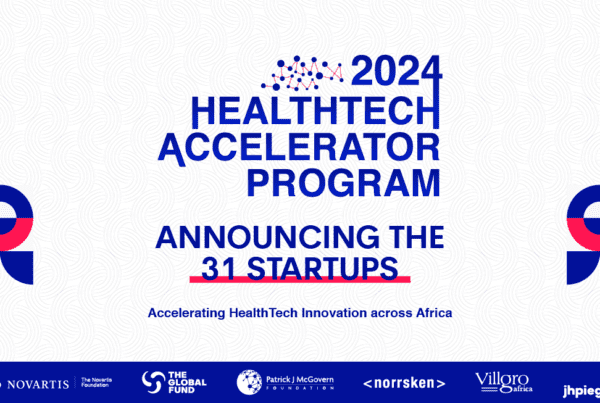In today’s world, digital transformation is a crucial driver for progress in various fields, including healthcare. Africa has made significant strides in healthcare in recent years, but it still lags behind other regions in digital transformation. However, there is a growing recognition among policymakers and stakeholders in Africa that digital transformation is essential to improve healthcare outcomes and make healthcare services more accessible and affordable.
This article will explore how government policies can encourage digital transformation in healthcare in Africa.
Investing in Digital Infrastructure
One key factor hindering digital transformation in Africa is the lack of digital infrastructure. Governments can encourage digital transformation in healthcare by investing in digital infrastructure such as high-speed internet connectivity, cloud computing, and data centers. With robust digital infrastructure, healthcare providers can access and share medical data, and patients can access telemedicine services and mobile health applications, among other digital healthcare services.
Promoting Digital Literacy
Another important factor that hinders digital transformation in healthcare in Africa is the lack of digital literacy among healthcare professionals and patients. Governments can promote digital literacy by investing in training programs for healthcare professionals using digital healthcare tools such as telemedicine platforms, electronic medical records, and mobile health applications. Governments can also promote digital literacy among patients by providing education on how to access and use digital healthcare services.

Creating Enabling Policies and Regulations
Governments can encourage digital transformation in healthcare by creating enabling policies and regulations. Policies such as data privacy and security laws, e-prescription regulations, and telemedicine guidelines can encourage the adoption of digital healthcare services by ensuring that patient data is protected and digital healthcare services are provided safely and effectively. Governments can also provide tax incentives and other financial support to healthcare providers that adopt digital healthcare services.
Encouraging Public-Private Partnerships
Governments can encourage digital transformation in healthcare by fostering public-private partnerships (PPPs). PPPs can leverage the strengths of both the public and private sectors to create innovative digital healthcare solutions. Governments can provide funding and other resources to encourage the private sector to develop and implement digital healthcare solutions. In contrast, the private sector can bring its expertise and resources to develop and implement these solutions.
Facilitating Interoperability
Interoperability is a crucial enabler of digital transformation in healthcare. Governments can facilitate interoperability by creating standards for data exchange and developing platforms for data sharing. Interoperability allows healthcare providers to access patient data from various sources, which can help to improve patient outcomes by enabling better diagnoses and treatments. Governments can also incentivize healthcare providers to adopt interoperable systems by providing funding and other resources.
Supporting Digital Health Startups
Governments can encourage digital transformation in healthcare by supporting digital health startups. Digital health startups can innovate and disrupt the healthcare industry by developing new digital healthcare solutions. Governments can provide funding, incubation facilities, and other support to encourage the development and adoption of these solutions. By supporting digital health startups, governments can help to create a thriving digital healthcare ecosystem in Africa.

Prioritizing Rural Healthcare
Digital transformation in healthcare can be particularly impactful in rural areas, where healthcare resources and infrastructure are often limited. Governments can prioritize digital healthcare initiatives in rural areas by providing funding and resources to healthcare providers that offer telemedicine and other digital healthcare services. This can help to improve healthcare outcomes for rural communities and reduce the urban-rural healthcare gap.
Leveraging Mobile Technology
Mobile technology is ubiquitous in Africa, and governments can leverage this to encourage digital transformation in healthcare. Governments can partner with mobile network operators to provide mobile-based healthcare services, such as health information messaging, appointment reminders, and telemedicine consultations. Mobile technology can also collect and share health data, informing public health initiatives and improving healthcare outcomes.
Building Trust in Digital Healthcare
Trust is a crucial factor in the adoption of digital healthcare services. Governments can build trust in digital healthcare by promoting transparency, data privacy, and security. Governments can also work with healthcare providers and patient advocacy groups to educate the public on the benefits of digital healthcare and the safety measures in place to protect patient data.
Developing Local Talent
Digital transformation in healthcare requires a skilled workforce, and governments can encourage the development of local talent by investing in training programs and educational initiatives. Governments can also provide funding and support for local startups and entrepreneurs developing innovative digital healthcare solutions. Governments can develop local talent by developing a sustainable digital healthcare ecosystem in Africa.

Promoting Research and Development
Research and development are critical to the development of new digital healthcare solutions. Governments can encourage research and development in digital healthcare by providing funding and support for academic and research institutions working on innovative digital healthcare solutions. Governments can also incentivize the private sector to invest in research and development by providing tax incentives and other financial support.
Ensuring Digital Inclusivity
Digital transformation in healthcare can potentially improve healthcare outcomes for all Africans. However, it is essential to ensure that digital healthcare services are accessible to all, regardless of socio-economic status or geographic location. Governments can work with healthcare providers and mobile network operators to ensure that digital healthcare services are affordable and accessible to all Africans, including those in rural and low-income areas.
Implementing E-health Records
E-health records are digital versions of patients’ medical records, which healthcare providers can access and share. Implementing E-health records can streamline healthcare services, reduce errors, and improve patient outcomes. Governments can encourage the adoption of E-health records by providing funding and support for healthcare providers to implement and use these systems.
Incorporating Artificial Intelligence (AI)
Artificial Intelligence has the potential to transform healthcare by analyzing large amounts of data, predicting outcomes, and improving diagnoses. Governments can encourage the incorporation of AI in healthcare by funding research and development, providing incentives for healthcare providers to adopt AI solutions, and promoting collaboration between healthcare providers and technology companies.
Facilitating Data Sharing
Digital healthcare generates vast amounts of data, which can be used to inform public health initiatives, improve healthcare outcomes, and develop new treatments. Governments can facilitate data sharing by creating policies and regulations that ensure patient data privacy while enabling the sharing of anonymized data for research purposes.
Addressing Cybersecurity
Digital healthcare systems are vulnerable to cyber attacks, compromising patient data and disrupting healthcare services. Governments can address cybersecurity concerns by creating policies and regulations that promote data privacy and security, providing funding and support for cybersecurity measures, and promoting cybersecurity education and awareness among healthcare providers and patients.
Encouraging Digital Health Literacy
Digital healthcare requires a certain level of health literacy among patients and healthcare providers. Governments can encourage digital health literacy by providing education and training programs for healthcare providers, creating public health campaigns to raise awareness of digital healthcare services, and promoting digital health literacy among vulnerable populations.
Incorporating Telemedicine
Telemedicine allows patients to receive healthcare services remotely, reducing the need for in-person visits and increasing access to healthcare services. Governments can encourage the adoption of telemedicine by providing funding and support for healthcare providers to implement telemedicine services, promoting public awareness of telemedicine services, and addressing regulatory barriers that may limit the use of telemedicine.
Promoting Interoperability
Interoperability refers to the ability of different digital healthcare systems to communicate and share data. Promoting interoperability can improve healthcare outcomes by allowing healthcare providers to access and share patient data more efficiently. Governments can promote interoperability by creating policies and regulations that require digital healthcare systems to be interoperable, providing funding and support for interoperability initiatives, and promoting collaboration between healthcare providers and technology companies.

Encouraging International Collaboration
Digital healthcare is a global issue, and international collaboration can accelerate the development of digital healthcare solutions. Governments can encourage international collaboration by participating in international forums and organizations focusing on digital healthcare, promoting collaboration between healthcare providers in different countries, and supporting international research and development initiatives.
Conclusion
Governments play a critical role in encouraging digital transformation in healthcare in Africa. By investing in digital infrastructure, promoting digital literacy, creating enabling policies and regulations, fostering public-private partnerships, facilitating interoperability, supporting digital health startups, prioritizing rural healthcare, leveraging mobile technology, building trust in digital healthcare, developing local talent, promoting research and development, ensuring digital inclusivity, implementing E-health records, incorporating artificial intelligence, facilitating data sharing, addressing cybersecurity, encouraging digital health literacy, incorporating telemedicine, promoting interoperability, and encouraging international collaboration, governments can create a thriving digital healthcare ecosystem in Africa that can improve healthcare outcomes, increase access to healthcare services, and reduce the cost of healthcare.






